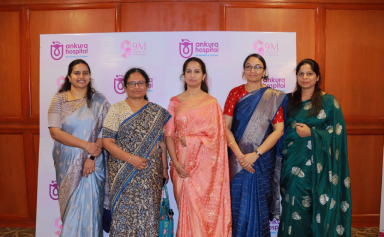.png)
Chief Guest 9M CME
Chapter on PGT in ART in the book Fertility Update 2024
The clinical utility of testing embryos is clearly demonstrated in last two decades and PGT is increasingly used in fertility centres to not only avoid genetic conditions in the offspring but to also improve IVF outcomes. PGT is used to detect numerical chromosomal defects, structural defects and single gene or monogenic genetic disorders in the embryos. Indications for PGT recommendation mostly include women with advanced maternal age, recurrent pregnancy losses, recurrent IVF failures and family history of genetic disorders. The chapter covers types of PGT, benefits, limitations, internation guidelines and follow up requirements in post-PGT pregnancies.

A study published in the American Journal of Human Genetics investigated the prevalence and impact of nonsense single nucleotide polymorphisms (SNPs) in the human genome. These variants introduce premature stop codons, potentially leading to truncated, nonfunctional proteins. By genotyping 805 nonsense SNPs across 1,151 individuals from 56 populations, researchers identified 169 genes with variable nonsense SNPs, with 99 genes showing inactivation in at least one individual. On average, individuals differed by 24 genes due to these SNPs alone. While most nonsense SNPs are slightly disadvantageous over evolutionary timescales, some may be advantageous, indicated by high population differentiation and frequency.
.png)



